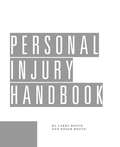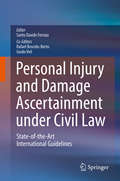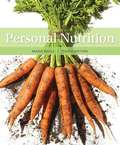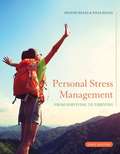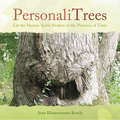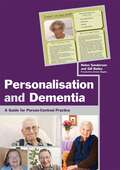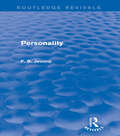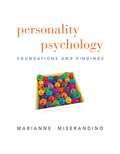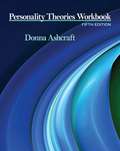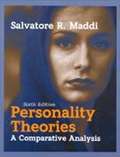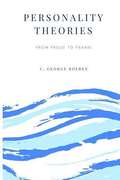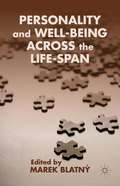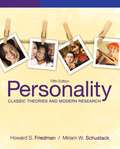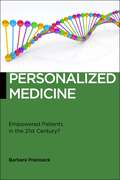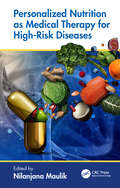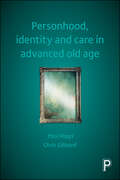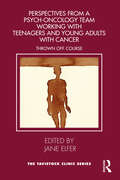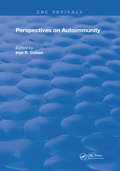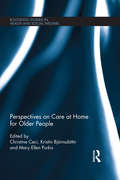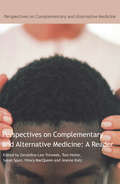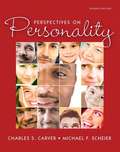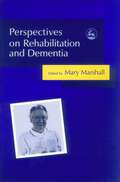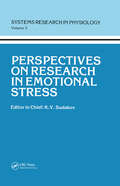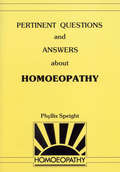- Table View
- List View
Personal Injury Handbook
by Larry BoothPersonal Injury Handbook As insurers grow more miserly, it is more important than ever to carefully select, investigate, prepare, and prosecute your cases. Larry and Roger Booth's Personal Injury Handbook is loaded with valuable practice aids and tips that will help you maximize the value of each of your cases. You receive over 140 forms and 60 checklists specific to 14 types of cases: * Motor vehicle accidents * Railroad crossing accidents * Premises liability * Premises security * Construction site accidents * Electrocution accidents * Dog bites * Collisions with livestock * Products liability * Auto crashworthiness * Medical malpractice * Sexual molestation * Insurance bad faith * Industrial equipment
Personal Injury and Damage Ascertainment under Civil Law
by Guido Viel Rafael Boscolo-Berto Santo Davide FerraraThis volume serves to provide an international overview of personal injury compensation in different geographical areas (15 countries already included), with a special focus on the methods used to ascertain the injury and the related damages. It also goes on to clarify the logical and methodological steps required for a sequential, in-depth ascertainment of any traumatic event and the related personal damage, both pecuniary and non-pecuniary. Personal injury is a legal term for an injury to thebody, mind or emotions suffered by the plaintiff under tort and/or civil lawregulations. Damages related to the injury can be pecuniary or non-pecuniary innature. Although several comparative studies and research projects on tort andcivil law and personal injury claims aimed at developing new tools forpromoting harmonization of private law have been performed at an internationallevel, heterogeneity and divergences still exist in the definition andcompensation of personal injury and damage across different national legislativesystems. The starting point for any awarding procedure should be a medical, or rather amedico-legal, assessment to gain evidence on the trauma or event causing theinjury, the mechanism of injury, the pre-existing health status of the injuredparty, and the health consequences of the injury (temporary and permanentimpairment, work incapacity, etc. ). In order to pursue the ultimate goal of aninternational harmonization of personal injury compensation, it is of upmostimportance to define the quality requirements for the medico-legalascertainment methodology, which are essential for guaranteeing theobjectivity, rigor, and reproducibility of the data and the evidence collectionprocedure. Currently, there are no supra-national medico-legal guidelines dealingwith the ascertainment methodology of personal injury and damage under tort andcivil law.
Personal Nutrition
by Marie A. BoyleBecome a smarter consumers with PERSONAL NUTRITION, Ninth Edition. Engaging and accessible, Boyle provides a solid grounding in fundamental nutritional principles and how to apply them to make informed, healthy choices. The Ninth Edition is thoroughly updated to reflect the latest research, recommendations, and current trends and issues. It also features new and revised illustrations, photographs, examples, and learning objectives to make material even more timely, relevant, and compelling for today's learners.
Personal Nutrition
by Marie BoyleBecome a smarter consumer with Boyle's PERSONAL NUTRITION, 10th Edition. Packed with the latest research, recommendations and emerging trends, this text equips you with a solid foundation in fundamental nutritional principles and the expertise to make informed, healthy choices. Lively illustrations, photographs and examples bring chapter concepts to life, while features like "The Savvy Diner" and "Eat Well, Be Well" offer practical tips you can put into immediate practice. The text is also supported by MindTap Nutrition, which helps you learn on your terms. The most engaging and customizable online solution in nutrition, MindTap combines readings, multimedia, assessments, activities and access to Diet & Wellness Plus--giving you everything you need to maximize your course success. Take charge of your own nutrition and health with Boyle's PERSONAL NUTRITION!
Personal Stress Management: From Surviving to Thriving
by Dianne Hales Julia HalesThis book equips you with the insights and skills you need to conquer the demands ahead, and give you relief when stress levels rise. Written by health and psychology experts, this book delivers specific strategies for tackling common campus stressors, including academics, time management, and relationship issues. You’ll learn helpful, easy strategies for changing your perspective and responding to stress with confidence and resilience, empowering you to manage even the most difficult situations and come out on top--in the classroom, in the workplace, and in life. This book engages you with practical tools you can use immediately, incorporating the latest insights from neuroscience, exercise physiology, nutrition, and medicine, while highlighting healthy habits like regular exercise and good nutrition to prevent burnout.
PersonaliTrees
by Joan Klostermann-KetelsBringing together photos of trees and inspirational quotes, this collection presents a new way of looking at trees. Trees can have visible faces, stories, beauty, loveliness, and hardship, and their personalities are brought to life in this book. Introducing trees as a portal to understanding the eternal truths and deeper meanings of life, the photographs and accompanying text inspire oneness with nature and illustrate how trees interact with all forms of life.
Personalisation and Dementia: A Guide for Person-Centred Practice
by Helen Sanderson Martin Routledge Gill BaileyPersonalisation builds on person-centred care to focus on how people with dementia can have more choice and control over decisions affecting them, and be supported to be part of their communities. This practical guide explains how to deliver personalised services and support for people with dementia through simple, evidence-based person-centred practices. The authors clearly explain personalisation and current person-centred thinking and practice, providing many vivid examples of how it has been achieved in community as well as residential care settings. They guide the reader through using a range of person-centred practices. Strategies for ensuring a good match between the person with dementia and the staff and volunteers supporting them are also described. In the final chapter, the reader is introduced to Progress for Providers, a photocopiable tool for tracking progress in delivering appropriate personalised support for people with dementia living in care homes. This is essential reading for dementia care practitioners and managers, as well as social and health care workers, community workers and students.
Personality (Routledge Revivals)
by F. B. JevonsFirst published in 1913, Jevons’ Personality marries the disciplines of philosophy and psychology in order to question the existence of personality and the arguments surrounding it. Intriguingly, Jevons suggests that if a person can question their own personality and existence, by extension they can also question the personality and existence of God. The book is arranged into four chapters based on a series of lectures delivered in Oxford in 1912: these discuss such areas as the relationship between science, psychology, and personality; the argument that "there are changes, but no things which change", and consequently there are changes, but no persons who change; and, the concepts of individualism and unity.
Personality Psychology: Foundations and Findings
by Marianne MiserandinoThis book introduces students to the basic foundations and latest findings by presenting the fundamental questions, accumulated knowledge, and latest findings in genetics, neuroscience, traits, self and identity, intrapsychic aspects, regulation, motivation, and cognition, as well as the integration across these areas. Personality Psychology is an undergraduate textbook for personality psychology: the study of individual differences, for identifying ways in which people are both similar and different and for explaining how they became that way. Written with an approachable, story-telling style, the author presents an evidence-based text with integrated culture references and the key building blocks of the subject matter: genetics, neuroscience, and cognition. Miserandino is an APA-award winning teacher and has placed learning tools such as self-assessments within each chapter that guide students into a complete understanding throughout the text.
Personality Theories Workbook (5th Edition)
by Donna AshcraftThe case studies in PERSONALITY THEORIES WORKBOOK, 5e, help you learn and apply personality theories to real-life examples of typical--rather than abnormal--behavior. While most personality texts present just the major concepts of personality theories, Donna Ashcraft's unique workbook ensures that you thoroughly understand examples and enables you to put theories into practice. The text's wide range of case studies is accompanied by questions that guide you through an analysis of the case, prompting you to consider how a particular theorist would view it. Additional exercises ensure that you understand the differences between each theory. Succinct, affordable, and accessible, PERSONALITY THEORIES WORKBOOK, 5e, combines an excellent assortment of cases with critical-thinking questions and greater application of theories to your personal life. The result is solid understanding.
Personality Theories: A Comparative Analysis 6th Edition
by Salvatore R. MaddiThis well-organized text gives direction to students of personality in their efforts to understand the whole person. Maddi's conversational style encourages thinking instead of memorizing, thereby helping readers master principles rather than merely accepting the principles of one theory or another. He explains, compares, and contrasts a number of different personality theories to illuminate the overall models of human behavior they express.
Personality Theories: From Freud To Frankl
by C. George BoereePersonality psychology is the study of the person. As such, it is arguably the broadest, most "philosophical", branch of psychology. It involves an examination of the effects of genetics, the physical environment, culture, upbringing, trauma, pathology and more. In as much as this is clearly a huge undertaking, it is as much a matter of competing theories as it is of empirical research. For this reason, it remains a tradition in the field to look at various attempts over the last 100-plus years to tackle the issue: "What is it to be a person?" This book attempts to provide an open-minded review of the most important of these theories.
Personality and Well-being Across the Life-Span
by Marek BlatnýPersonality and Well-being Across the Life-Span.
Personality: Classic Theories and Modern Research (Fifth Edition)
by Howard S. Friedman Miriam W. SchustackThis successful text puts "personality" back into the personality course, integrating the classic insights of the personality theorists with modern research in a manner that will fascinate and encourage deeper thought. This text explores classic theory from a perspective that encourages critical thinking and fosters intellectual insight with respect to human nature. For example, it shows the relevance of classic theory to topics of personality and culture, evolution, ego, gender, and person-situation interactionism. Employing the highest scientific standards, Personality also uses a wide range of unique and provocative pedagogical devices that have been shown to motivate students. Hailed as the best-written, most relevant personality textbook on the market, Friedman and Schustack's fourth edition brings the field of personality to today's diverse student body.
Personalized Medicine: Empowered Patients in the 21st Century? (Biopolitics #7)
by Barbara PrainsackInside today's data-driven personalized medicine, and the time, effort, and information required from patients to make it a realityMedicine has been personal long before the concept of “personalized medicine” became popular. Health professionals have always taken into consideration the individual characteristics of their patients when diagnosing, and treating them. Patients have cared for themselves and for each other, contributed to medical research, and advocated for new treatments. Given this history, why has the notion of personalized medicine gained so much traction at the beginning of the new millennium? Personalized Medicine investigates the recent movement for patients’ involvement in how they are treated, diagnosed, and medicated; a movement that accompanies the increasingly popular idea that people should be proactive, well-informed participants in their own healthcare.While it is often the case that participatory practices in medicine are celebrated as instances of patient empowerment or, alternatively, are dismissed as cases of patient exploitation, Barbara Prainsack challenges these views to illustrate how personalized medicine can give rise to a technology-focused individualism, yet also present new opportunities to strengthen solidarity. Facing the future, this book reveals how medicine informed by digital, quantified, and computable information is already changing the personalization movement, providing a contemporary twist on how medical symptoms or ailments are shared and discussed in society. Bringing together empirical work and critical scholarship from medicine, public health, data governance, bioethics, and digital sociology, Personalized Medicine analyzes the challenges of personalization driven by patient work and data. This compelling volume proposes an understanding that uses novel technological practices to foreground the needs and interests of patients, instead of being ruled by them.
Personalized Nutrition as Medical Therapy for High-Risk Diseases
by Nilanjana MaulikPersonalized nutrition involves the formulation of individualized nutritional recommendations to promote and maintain health based on an individual's genetic makeup and other unique intrinsic and extrinsic factors. Implementing personalized nutrition plans for individuals with certain diseases or who are in danger of developing health conditions could help control the onset and severity of symptoms. Personalized Nutrition as Medical Therapy for High-Risk Diseases offers a practical guide for physicians seeking to provide tailored dietary recommendations to their patients with disease treatment, modulation and prevention in mind. The book focuses on the biological mechanisms of specific diseases and provides evidence for how personalized nutrition positively impacts them. It explores conditions including cardiovascular diseases, hypertension, hypercholesteromia, diabetes, obesity, Crohn's disease, as well as multiple pediatric, renal and psychological disorders. Features: · Includes case studies that document how people respond differently towards food depending on their genetic structure and other factors. · Discusses genome wide association studies (GWIMS) to understand the interplay between genetic susceptibility and dietary interactions. · Provides users information to effectively implement personalized nutrition into practice. · Identifies possible challenges to the implementation of personalized nutritional interventions in a clinical setting. This book is for medical practitioners and will also appeal to researchers and students.
Personhood, Identity and Care in Advanced Old Age
by Paul Higgs Chris GilleardHow do we sustain agency and identity amidst the frailty of advanced old age? What role does care play in this process? Pushing forward new sociological theory, this book explores the theoretical and practical issues raised by age and infirmity. It begins with a theoretical examination of the fourth age, interrogating notions of agency, identity and personhood, as well as the impact of frailty, abjection and ‘othering’. It then applies this analysis to issues of care. Exploring our collective hopes and fears concerning old age and the ends of people’s lives, this is essential reading on one of the biggest social issues of our time.
Perspectives from a Psych-Oncology Team Working with Teenagers and Young Adults with Cancer: Thrown Off Course (Tavistock Clinic Series)
by Jane ElferExploring the work of a Psych-Oncology Team in an inpatient and outpatient setting, this powerful, interesting, and engaging book is about teenagers and young adults diagnosed with cancer. As part of the few multidisciplinary teams of this type in the United Kingdom, the authors offer helpful insights into supporting young people and their families as they navigate this complex and devastating disease, writing on key areas such as trauma, the effects of early childhood cancer in adolescence and beyond, the social and cultural effects of cancer treatment, hope, and hopelessness, and questions of mortality. Each chapter contains a mixture of clinical reflections and patient vignettes, along with clear guidance about how to support patients and their families both during and after treatment, and at the point of death too. With a compassionate approach to understanding the challenges for patients, their families, and clinicians alike, this is a book for nurses, doctors, occupational therapists, and physiotherapists, for parents and carers, and for young people who find themselves in this position and who can easily feel as though they are alone with their overwhelming feelings.
Perspectives on Autoimmunity (Routledge Revivals)
by Irun R. CohenFirst Published in 1988, this book offers a full, comprehensive guide to autoimmunity. Carefully compiled and filled with a vast repertoire of notes, diagrams, and references this book serves as a useful reference for students of medicine, and other practitioners in their respective fields.
Perspectives on Care at Home for Older People (Routledge Studies in Health and Social Welfare)
by Christine Ceci Kristín Björnsdóttir Mary Ellen PurkisDemographic and epidemiological changes mean that frail older people have come to be seen as an expensive problem for health care systems. The challenge for professionals and policy-makers is to find ways to respond to the coming crisis by delivering high-quality care in the home. This collection offers a critical analysis of home care policy and practice. It focuses on how high-quality care is provided and the practices and policies that support this. It offers case studies (both policy- and practice-oriented empirical studies) from countries that share a basic orientation to social welfare: Canada, Denmark, Finland, Iceland, Sweden and the United Kingdom. The nine chapters set out a critical agenda for the development of "good" practices in challenging times. This book is essential reading for students, practitioners and researchers who wish to understand diverse problems in care provision for frail older persons and the complexities of policy responses in different health and social care contexts.
Perspectives on Complementary and Alternative Medicine: A Reader
by Jeanne Katz Tom Heller Geraldine Lee-Treweek Susan Spurr Hilary MacQueenComplementary and alternative medicine (CAM) is an emerging and increasingly popular group of treatments, therapies and philosophies of health and wellbeing. It is a fascinating and fast-changing area of social life, which also poses an interesting challenge to current healthcare delivery and policy making. This reader presents a lively and engaging collection of classic, controversial and new readings on CAM and covers issues including: changes in the way CAM is developing and being delivered holism and what this concept means to CAM practice changes in consumption and the health consumer that have lead to increased interest in CAM the safety and effectiveness of CAM treatments how integration is being achieved in contemporary society. The text provides insight into many of the current and complex issues surrounding CAM, and will appeal to everyone who is concerned with, or who has an interest in, complementary and alternative healthcare. The book will be essential reading for students of CAM, health studies, nursing, medicine and allied health subjects, as well as medical sociology and modern health policy.
Perspectives on Personality (7th Edition)
by Charles S. Carver Michael F. ScheierThis book describes a range of viewpoints that are used by personality psychologists today. Each perspective on personality is presented in a pair of chapters, introduced by a prologue that provides an overview of that perspective’s orienting assumptions and core themes. By starting with these orienting assumptions, you’ll be placed right inside the thought processes of the theorists, as you go on to read the chapters themselves. Each chapter concludes with a discussion of current problems within that theoretical viewpoint and the authors’ analysis about its future prospects. The result is a book that is engaging and enjoyable as well as informative. Learning Goals Upon completing this book, readers should be able to: Identify the ideas that form each theoretical viewpoint Understand the importance of research and why the role of research stresses the fact that personality psychology is a living, dynamic process of ongoing scientific exploration See how each perspective reflects fundamental assumptions about human nature and how behavior problems can arise and be treated from each perspective Understand how the different viewpoints relate to each other and the usefulness of blending theoretical viewpoints, treating theories as complementary, rather than competing.
Perspectives on Rehabilitation and Dementia
by Faith Gibson Linda Clare Mary Marshall Suzanne Cahill'The volume has ambitious scope and covers almost all potential supports and services. Most of the chapters have been written by professionals who work with people with dementia and their families, and most are British social workers and professionals allied-to-medicine (occupational therapy, physiotherapy and speech and language therapy).' - Ageing and Society 'Marshall, in her introduction, states that the aim of the book is to strengthen the link between rehabilitation and dementia and to encourage the understanding that people with dementia do benefit from rehabilitation and treatment. The book clearly meets this aim with the contributors offering convincing arguments for the conceptualisation of dementia care as rehabilitation and the potential for improvements in symptoms and in quality of life for people with dementia... The book is accessible, easy to read, informative and provides practical information and new ideas useful for practitioners, services providers, commissioners and policy makers.' - Social Policy 'This book has much to offer a range of professionals and those teaching them at post-qualifying levels.' - Journal of Interprofessional Care 'The chapters give us a real and honest appraisal of the pains and possibilities of dementia. And David Jolley ends his chapter with what could be seen as a surprising statement that "Life with dementia is worth Living". His ideas sum up the tone of the book which asserts that people with dementia still have much to give but need help in order to maintain health, safety and dignity, and offers various practical therapeutic models that have been worked out in different settings... throughout the book we are encouraged to keep the person with dementia at the centre of care and to see them as a unique individual with a disability who needs help.' - Perspectives on Rehabilitation and Dementia 'Service planners could gain from dipping in to this collection and testing the extent to which their current plans reflect the thinking shared by the authors. The importance of team working is stated throughout, and in an era of partnership working this provides yet another useful policy book on which to hang revised plans' - Community Care 'Contributions from people with dementia and their families provide the central core of the text and anchor it firmly in reality. There is a unanimously positive approach to rehabilitation. Many of the authors focus on self esteem and confidence with many references to the need of teamwork. They also share the positive view of people with dementia, which concentrates on personhood focussing upon the whole person, drawing upon their strengths as well as taking into account declining abilities in some areas. This book is strongly recommended for health care professions, particularly nursing courses.' - London Centre for Dementia Care News 'The book explores the positive outcomes for people with dementia in terms of quality of life and self-esteem, especially if rehabilitation is seen as a positive philosophy of practice as well as a set of skills and approaches. It includes many different perspectives from a diverse group of professionals, carers and practitioners, and people with dementia themselves.' - Working with Older People Perspectives on Rehabilitation and Dementia offers new insights into the application of a well-established approach and set of skills to a group of people who have traditionally been thought not to benefit from them. Indeed people with dementia have missed out on physical and psychological rehabilitation very substantially. This book demonstrates that rehabilitation has positive outcomes for people with dementia in terms of quality of life and self-esteem, especially if rehabilitation is seen as a positive philosophy of practice as well as a set of skills and approaches. The perspectives in this book are those of a very diverse group of professionals, carers, and people with dementia themselves. Professional backgrounds and the settings in which they work are diverse and include both academics and prac...
Perspectives on Research in Emotional Stress
by Detlev Ganten Nicola A. Nikolov K.V. SudakovFirst Published in 1989. Based on the updated proceedings of the Soviet-American International Pavlovian Conference held in Moscow, this volume presents a new trend in the systems analysis of emotional stress as an outcome of behavioural conflict situations in which the subjects fail to achieve a useful end result. The mechanisms, complications, prevention and behavioural therapy of emotional stress are examined. While almost any of the body functional systems can be involved, psychosomatic and immune system disorders, coronary heart diseases and hypertension are shown to be the major complications of chronic exposure to emotional stress in both humans and animals. A special section of the book highlights various approaches towards the enhancement of stress resistance in man through emotional self-regulation, relaxation, social skills training and other biobehavioural interventions.
Pertinent Questions And Answers About Homoeopathy
by Phyllis SpeightAt the end of any lecture on homoeopathy there are numerous questions which often prove of great interest and help to those seeking an understanding of the subject.The questions and answers given here are a selection of the most important from a series of lectures given by my wife.Information in this form is easy to absorb and it should prove of value to those who are unable, or unwilling, to make study of the text books which give information in great detail but do not provide all the answers!
